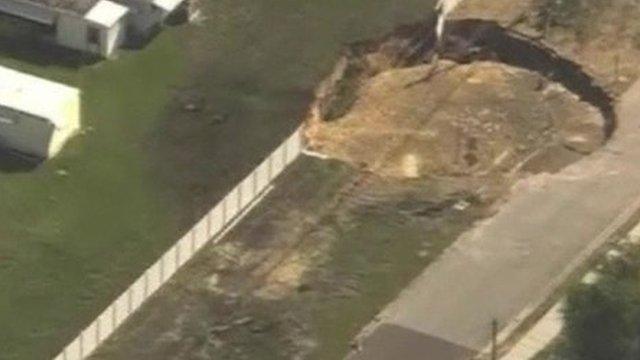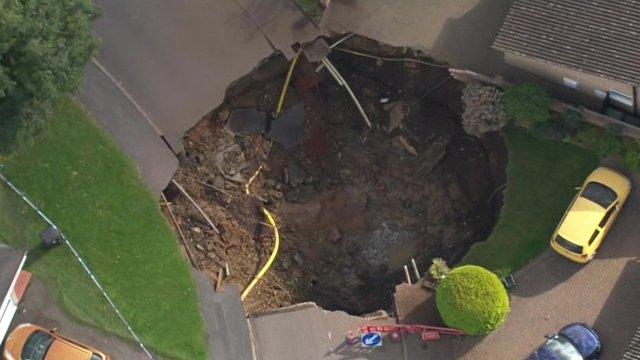Florida sinkhole causes huge waste water leak into aquifer
- Published
Aerial view of the sinkhole which opened up under a phosphate fertiliser firm.
About 980 million litres of contaminated water have leaked into Florida's main underground source of drinking water, state officials say.
The leak occurred after a huge sinkhole opened up under a phosphate fertiliser plant near Tampa, damaging the stack where waste water was stored.
The water contained phosphogypsum, a slightly radioactive by-product from the production of fertiliser.
The phosphate company Mosaic said the leak posed no risk to the public.
It added the contaminated water had not reached private supplies and the firm was recovering it using pumps.
"Groundwater moves very slowly," senior Mosaic official David Jellerson was quoted as saying by the Associated Press news agency.
However, Jacki Lopez, Florida director of the Center for Biological Diversity, told Reuters news agency: "It's hard to trust them when they say 'Don't worry,' when they've been keeping it secret for three weeks."
Frequent monitoring
A spokeswoman for Florida's Department of Environmental Protection said the company was updating state and federal agencies on the situation.
Dee Ann Miller said her agency was doing frequent site visits to safeguard public health.
"While monitoring to date indicates that the process water is being successfully contained, groundwater monitoring will continue to ensure there are no offsite or long-term effects," she said in an email to Associated Press.
The sinkhole - about 45ft (14m) in diameter - at Mosaic's New Wales facility in the town of Mulberry was discovered by a company worker on 27 August.
The sinkhole later caused the waste pond to drain, and the contaminated water has now seeped into the aquifer.
Aquifers are massive underground systems of porous rocks that hold water.
- Published31 March 2016

- Published2 October 2015
